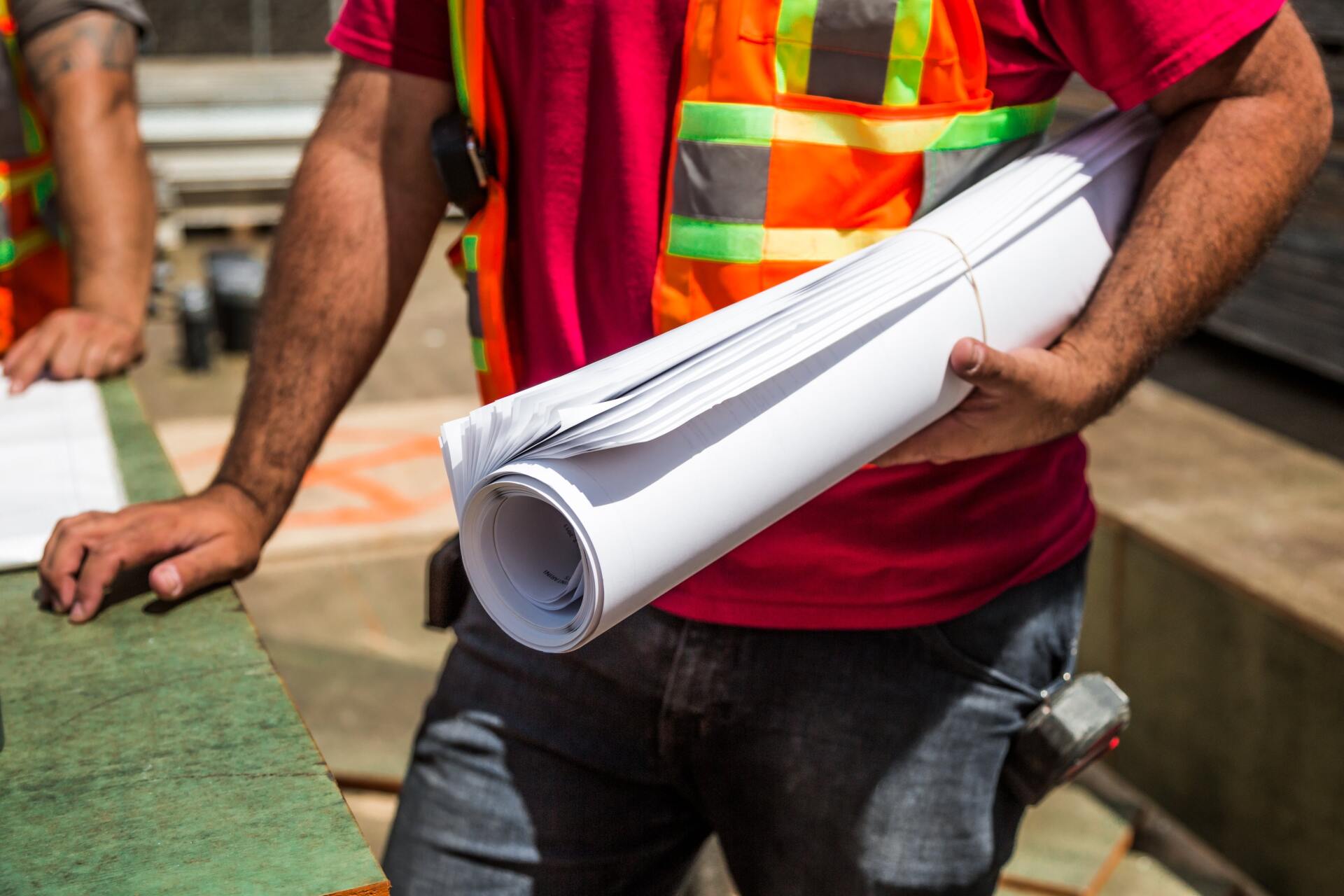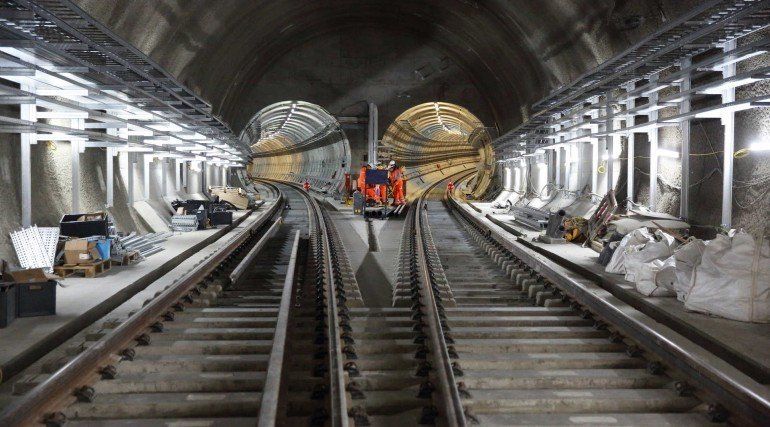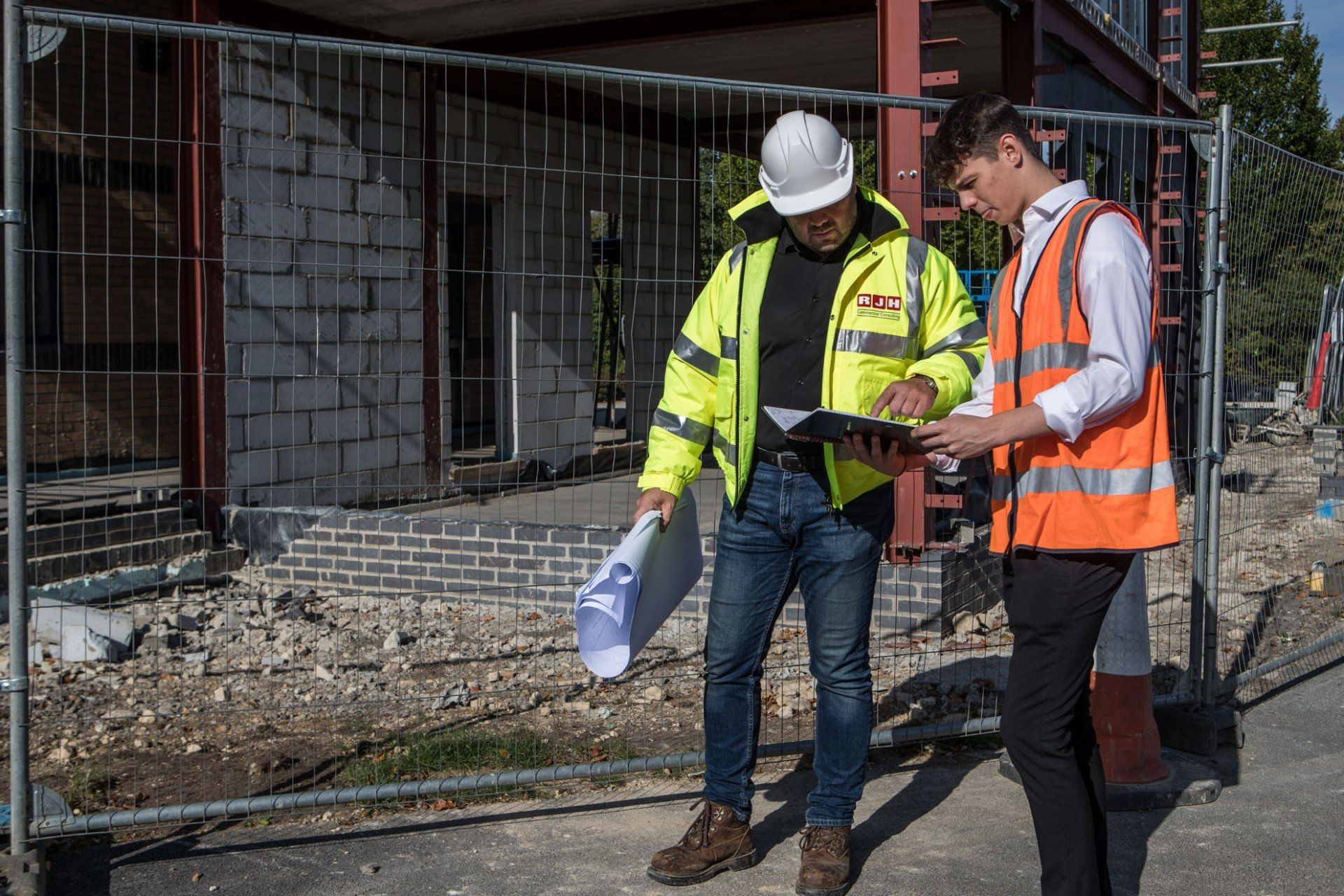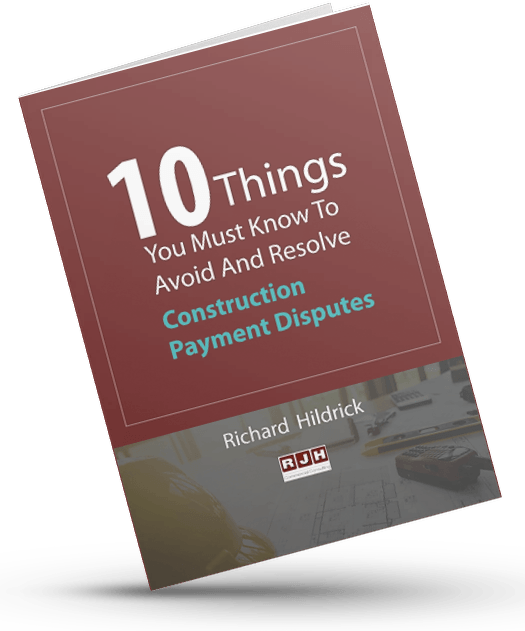Blog Layout
Template Documents for Successful Commercial Management
Ready-made Package of Templates: the one-stop way to make your life easier

There are several documents which Subcontractors need to use time and time again to ensure the right paperwork is in order.
Creating all of these documents from scratch takes valuable time, and getting them right requires expertise to ensure there’s nothing for the Main Contractor to catch you out on.
As the Subcontractors’ friend, we want to make your life easier. So we’ve put together a suite of these standard template documents. Focusing on those you need to use regularly, we’ve created them as a ready-made package of resources for you, including:
• Certificate of Practical Completion
• Clean Up Notice
• Contra Charge Notice
• Delay Notice
• Pay Less Notice
• Suspension of Works Notice
• Variation or Compensation Event Notice
• Subcontract Order
• Purchase Order
You can choose to adjust the package of documents to suit your needs, and we’ll edit them to match your branding for the confidence and professional finish you’re proud of.
It’s a low up-front cost that’ll save you expense, losses, and hassle in the long term.

By RJH Consulting
•
15 Apr, 2021
Every project and problem is different. Yet in all the years we’ve spent supporting Subcontractors, there are some common issues that come up time and time again. As a Subcontractor in construction, it is highly likely that you are only too familiar with the these challenges, and causes of problems on your projects. We’ve highlighted the 20 most common commercial problems which we find that subcontractors struggle with, despite doing a great job on site and being experts in their trade. You can download them here:

25 Feb, 2021
Our workshops are tailored to each company’s requirements, ensuring you and your team get the most out of it, at a fixed price.
One previous attendee said the workshop was: “Vital to anyone working in a commercial or project management role in construction, to understand the workings and thinking of main contractors today.”

By Richard Hildrick
•
10 Feb, 2021
Are you aware of the new reverse charge VAT rules coming into force from March 2021? 1st March 2021 will see the new reverse charge VAT rules for the construction industry being brought into force . Please contact Amanda amanda@rjhconsulting.co.uk if you would like us to send you some useful resources to guide you through the process, including: • Flowchart for PAYING A SUBCONTRACTOR • Flowchart for SUBCONTRACTORS • Sales invoice example taken from HMRC’s website NOTE: it is important to add the wording with regards to the reverse charge on your own invoice. What do you need to do? The new legislation has been brought in so that Subcontractors will no longer charge VAT to Contractors who are not end users of the subcontracting services they receive. The rules only apply to work carried out under the construction industry scheme (CIS) where both supplier and buyer are VAT and CIS registered. Are you a Subcontractor (supplier) who is NOT working for an end user? If you are VAT registered and carrying out work for a Building Contractor who is VAT registered and registered under CIS, you will no longer charge any VAT to the Contractor on your sales invoices – neither the labour nor materials. The vital points are that you are: 1. working for a CIS registered Contractor as a Subcontractor; and 2. both you and they are VAT registered. All these conditions must be met for the reverse charge to apply and VAT must no longer be charged. Do you employ sub-contractors under CIS as a contractor (buyer) and are NOT an end user? If you are VAT registered and so are your Subcontractor, they must no longer charge you VAT. Who is an end user? Contractors and Subcontractors will charge VAT as usual to end users, such as a domestic homeowner for whom you are building an extension or a manufacturer for whom you are building a warehouse. The Homeowner is neither a Contractor nor VAT registered, so a normal VAT invoice would be raised. The manufacturer may be VAT registered but is not a Contractor, so a normal VAT sales invoice would be raised. You do not need written notification they are an end user where it is obvious but always ask, just in case. It is possible for an end user to be VAT registered and CIS registered and, in this case, the reverse charge does not apply, VAT must be charged by the Subcontractor. This would occur if the end user employs you as a Subcontractor and there is no onward supply of yours or their building services. An example of an end user who is both CIS and VAT registered might be a housing developer building homes to sell on. You will need some sort of written notification (letter/contract/email) from your customer (the Contractor) to state that this is the case. If they are an end user, you must charge VAT. It is likely that large developers will have a good knowledge of the rules and will automatically guide you on how to bill them appropriately. CIS deductions The new VAT rules do not affect CIS deductions. They remain exactly the same as before with tax deducted from the sales invoice labour amount after VAT has been deducted. Where an invoice has no VAT added to it, the sales invoice total is now obviously the net amount for deductions purposes. Please contact Amanda amanda@rjhconsulting.co.uk if you would like us to send you some useful resources to guide you through the process, including: • Flowchart for PAYING A SUBCONTRACTOR • Flowchart for SUBCONTRACTORS • Sales invoice example taken from HMRC’s website NOTE: it is important to add the wording with regards to the reverse charge on your own invoice. RJH Commercial Consulting is sharing this HMRC information as a guide and for information purposes only, this document does not constitute advice or recommendations, please visit the HMRC website for full details.

By Richard Hildrick
•
09 Oct, 2020
“There has been a very welcome understanding from RJH of our unique funding condition which has necessarily changed the order of approach for the project, that a regular project might not reflect. RJH also has a robust approach defending our position and achieving our objectives when dealing with all the contractors, quietly and effectively invoked. We also have comfort that there is experience in dispute resolution which should prevent out project requiring those services, and we have benefited from the consistency of working with one person throughout.” – Richard Mole. Project Co-Ordinator, Trustees of Driffield Methodist Church

By Richard Hildrick
•
25 Apr, 2020
As a Subcontractor in construction, it is highly likely that you are only too familiar with the problem of contra-charges and other unjustified deductions from your account. The Main Contractor just takes your money as he likes and you feel powerless to do much about it. The following short story might resonate with you and also provide you with the answer: Phone a friend.

By Richard Hildrick
•
24 Apr, 2020
“RJH advice and recommendations have been invaluable throughout this contract. With their guidance we have achieved an excellent result with an amicable final account agreement with our client. We would have no hesitation recommending RJH and plan to engage them on other complex contracts.” – John Taylor, Managing Director F.B.Taylor (Cable Contractors) Ltd.

By Richard Hildrick
•
24 Feb, 2020
The Power of Adjudication in the Right Hands Subcontractors often contact us only after months of wasted time and energy trying to get a Main Contractor to pay them - for Variations, for works completed, for extended prelims, or to release unjustified contra-charges or other deductions. They are usually extremely frustrated and often angry. And rightly so. Many Subcontractors even find that they can no longer even get hold of the Main Contractor’s staff who were previously so keen to talk to them about getting the work done. They are getting nowhere and in the meantime their cash remains in the Main Contractor’s hands. Our Subcontractor Clients tell us that their best decision was to call us rather than make another time-wasting call to the Main Contractor’s QS, who never answers anyway. Main Contractors don’t ignore our correspondence, they know that they can’t, because we have the power of adjudication up our sleeve, to deploy quickly and effectively on behalf of our Subcontractor Clients. And we have the experience required to obtain the best result for Subcontractors, at the minimum cost. A recent case for one of our Clients, a specialist Joinery Subcontractor, successfully addressed his inability to obtain payment of over £200,000 of contra-charge deductions from his account. Before our appointmant, the Main Contractor was adamant that he was entitled to keep all of this money, and wouldn’t entertain any of the Subcontractor’s efforts to resolve matters. However, once the Subcontractor made the wise decision to call RJH, we had his case in Adjudication within a week, and obtained an Adjudication Award for him within just over a month. The Adjudicator awarded our Subcontractor Client every penny of his £200,000+ by the way. The Subcontractor not only recovered his money, but also his valuable time which he can now direct towards running his business. And now he involves us from pre-contract stage to ensure that the risk of this happening again is minimised.

By Richard Hildrick
•
31 Jan, 2020
Here is another selection of Subcontract Terms which we have encountered when reviewing Subcontract Orders for Subcontractors or when helping them to resolve disputes. They range from the unreasonable to the unfair, to the ridiculous - but Subcontractors must reject all such provisions before agreeing any Subcontract. Note that it is the principles of each of the clauses which is most important - there are many wording/drafting variations out there which follow these 5 themes. More Unfair Terms have been posted on Linkedin already, and more will follow in a later blog. If you have any issues with Subcontract terms, please call us for a free initial consultation on 01347 811155. Another 5 Unfair Sub-Contract Terms for Subcontractors to be Wary of and What To Do About Them NOTICE OF VARIATIONS “If the Subcontractor identifies an event that would constitute a Variation under the terms of the Subcontract; the Subcontractor shall, as a condition precedent to payment, notify the Contractor in writing within one (1) working day. If the Contractor considers such a change constitutes a Variation, the Sub-Contractor shall upon request prepare and submit, within one (1) working day, an evaluation of the effect of such Variation for the Contractor’s approval, at its sole discretion ” • This clause is both unreasonable and impractical. Both of the one-day periods are unreasonable, and are arguably unenforceable as well, however in order to avoid disputes such tight timescales should never be accepted. • The condition precedent obligation to notify Variations in order to be entitled to payment must also be rejected, otherwise there is a risk of the Subcontractor carrying out additional works and not being able to obtain payment. Such pre-conditions in relation to Variations should never be accepted, even with a longer timescale for notification. • The valuation of Variations must always be subject to fair valuation rules, usually related to the Subcontract rates and prices, or similar; and should not be at the Contractor’s discretion. IMPOSITION OF NEW WORKING ARRANGEMENTS AT THE SUBCONTRACTOR’S COST “The Contractor may issue such instructions as he considers necessary to co-ordinate the performance of the Sub-Contract Works with the work of others, including but without limitation, alteration of the methodology, access, sequence and timing of the Sub-Contract Works and the Subcontractor shall forthwith comply with such instructions at its own cost” • This clause goes well beyond reasonable co-ordination with other trades, which is to be expected. • The objectionable element of this clause is the ability of the Contractor to change the working arrangements relating to method and access, and to impose new sequence/timing requirements. All of this is likely to result in the Subcontractor suffering uneconomic working and ultimately losses. • The imposition of any such additional constraints as to how the Sub-Contract Works are to be performed must always amount to an event for which the Sub-Contractor has the ability to claim additional payment (and time). This could be achieved by changing the words “at its own cost” at the end of the clause to “which shall constitute a Variation”. SUSPENSION OF WORKS AT THE SUBCONTRACTOR’S COST “The Contractor may suspend the Sub-Contract Works or any part thereof at any time upon giving written notice of the time when suspension of the Sub-Contract Works shall take effect, which, for the avoidance of doubt may be with immediate effect. If the Sub-Contractor does not restart the Sub-Contract Works within a period of four weeks from the date of suspension (“the Allowable Suspension Period”), the suspension will be treated as a Relevant Sub-Contract Matter. The calculation of any loss and/or expense pursuant to this clause or any common law rights shall not include any cost, loss or expense that the Sub-Contractor has or would have incurred during the Allowable Suspension Period in any event.” • It is the final part of this clause which makes it objectionable – the Subcontractor is required to stand the extra cost of his works being delayed by up to 4 weeks, at any time. This could also be applied on multiple different occasions. • All such imposed suspensions of work must give the Subcontractor full entitlement to recover his additional costs incurred. Therefore clauses such as the above must always be rejected. SUBCONTRACTOR’S LIABILITY FOR MAIN CONTRACT DELAY DAMAGES “If Subcontractor is delayed in the execution of the Subcontract Works and/or in the event that Contractor incurs delay damages under the Main Contract due to acts or omissions attributable to Subcontractor, Subcontractor shall indemnify Contractor for such delay damages. Subcontractor must pay such delay damages immediately upon request of Contractor and without resort to excuses, legal action or proof of damages.” • The final sentence of this clause is outrageous, amounting to an on-demand payment provision, which should never be accepted. • The wording of the first line even suggests that if the Subcontractor is delayed by any cause, he will become liable for Main Contract Delay Damages. However the delay may be caused by a matter which is not the Subcontractor’s Risk and for which an extension of time and associated relief from damages can be claimed. • The Subcontractor should not accept such provisions, or anything which seeks to extend liability beyond the common law position of damages arising directly from a breach of contract. Even then it is recommended that the Subcontractor always protects itself with an overall limitation of liability provision. SUBCONTRACTOR’S OBLIGATION TO ACCELERATE AT ITS OWN COST “If at any time: • the Contractor considers that the Subcontractor is failing to maintain adequate progress, or • the Subcontractor has notified the Contractor of delay and/or requested an extension of time, or • the Contractor reasonably believes that the Subcontractor is at risk of becoming materially delayed Then the Subcontractor shall, if instructed by the Contractor, deploy additional resources, work extended hours including night shifts and weekends, furnish additional labour and plant as may be required, and take all steps necessary to mitigate the consequences of delay as the Contractor shall specify, for such period as is necessary to return to and thereafter maintain the Subcontract programme. The Subcontractor shall perform its obligations under this clause at no additional cost to the Contractor .” • Such an obligation to accelerate, as dictated by the Contractor, should never be accepted. • Clearly the final sentence of this clause is unreasonable and must never be accepted. • Acceleration provisions should only be accepted where they are subject to the Subcontractor’s agreement (at the time) to the acceleration request, AND to prior agreement of the additional sums to be paid to the Subcontractor for the acceleration measures.
RJH Commercial Consulting Ltd, York Eco Business Centre, Amy Johnson Way, Clifton Moor, York, YO30 4AG
© 2024
All Rights Reserved | RJH Commercial Consulting Registered in England No. 06558452




